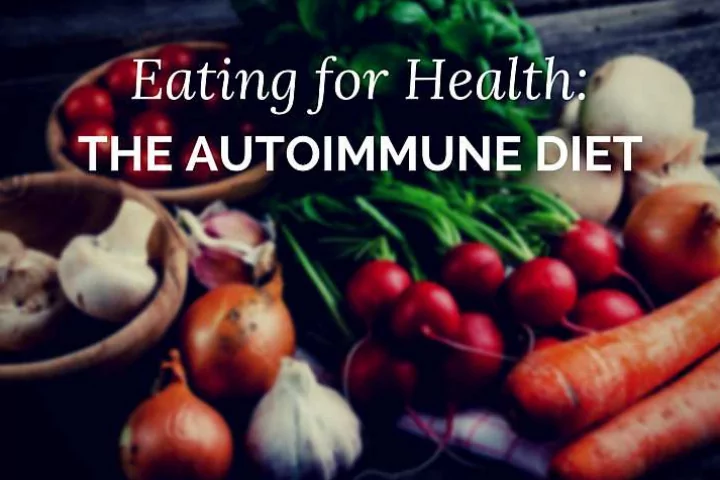

Autoimmune Disease - What Is It? We depend on our immune system to stay healthy or recover from illness. Like a trusted friend, it comes rushing to your defense when your body is under attack from harmful bacteria or viruses. However, if you have an autoimmune disease, your immune system begins to turn on itself, attacking your body’s healthy organs, tissues, nerves, and joints as if they were foreign invaders. This causes a number of troubling (and frustrating) health issues. Sadly, in spite of the prevalence of the disease, diagnosis is not always easy. Estimates show that it can take an average of six to ten doctors and five years to receive an autoimmune diagnosis! Why is conventional medicine struggling to offer REAL relief to folks with autoimmune conditions?
Why Conventional Medicine Often Fails Conventional medicine fails to recognize diseases of the immune system as a whole, but rather disorders of particular organs. For example: if you suffer from an autoimmune disease, you will likely see several different specialists: a endocrinologist for Hashimoto’s; a rheumatologist for rheumatoid arthritis, a gastroenterologist for celiac; and so on. Rather than treating the body as a whole - figuring out what caused the immune system to go rogue in the first place and its impact on various organs, mainstream medicine treats each symptom separately. The result? The root cause of the immune disorder is never addressed, and instead of supporting the immune system, medications are often prescribed that suppress immune function. In order to find lasting relief from autoimmune symptoms a whole body approach is vital. A key factor in this method of care is understanding the role diet plays in an autoimmune response.
“Let food be thy medicine and medicine be thy food,"~ Hipporcates The approach to health reflected in the words above is one we wholeheartedly subscribe to, and this method is especially important when you've been diagnosed with an autoimmune disease. Certain foods are known triggers of inflammation, which often result in an autoimmune response. Keep in mind that you don’t need to be allergic to a food for it to trigger an autoimmune flare. Learning to avoid trigger foods is an excellent first step in managing your symptoms. You won't regret taking the time to look beyond conventional medicine, learning to use a whole body approach for lasting relief from your autoimmune symptoms. Let's get started!
Gluten Ah yes, the infamous "G" word. Today, gluten-free may be an TEXT HERE overused term, but for those with an autoimmune disorder, the impact of eating it is very real. In fact, gluten is a known autoimmune trigger for some — and it can take up to six months to recover from completely!
Sugar In recent years the link between sugar and chronic disease has TEXT HERE been made well known, and for autoimmune sufferers it's vital to avoid it. Be careful! So-called natural sweeteners, such as turbindado sugar and agave nectar, will still trigger an immune response.
Artificial Sweeteners Since we're on the subject of sugar, let's TEXT HERE chat about artificial sweeteners. Research now shows a link between Hashimoto's (an autoimmune disease) and artificial sugars. Some have even found that by simply eliminating artificial sweeteners and diet soda their symptoms disappear.
Soy In small amounts soy can be digested without causing harm to the body. However, the TEXT HERE typical American diet contains way too much of it. Soy can not only affect your hormones, it's frequently genetically modified. Your body identifies GMO's as an invader and sends out an attack, often on itself. Limit this food trigger whenever possible.
Dairy You may love your cheese, but it may not love you. TEXT HERE The protein called casein is often the offending culprit in triggering an immune response. That being said, many find that they can tolerate fermented products, such as yogurt, without any issues. Try keeping a food journal and take note of which dairy products cause your autoimmune flare.
Nightshades One would think that eating vegetables is always a good idea, right? Not so fast! TEXT HERE Nightshades (a plant group that consists of tomatoes, peppers, potatoes, eggplants, goji berries) contains alkaloids in their skin which can cause an inflammatory response. Pay close attention to how your body reacts to these foods before making them a regular part of your diet.
Gluten-Free Grains Many mistakenly pat themselves on the back for avoiding gluten, only TEXT HERE to turn to grains such as corn, rice, and oats. The proteins in these grains are very similar to gluten, and cause a cross-reaction for those with gluten sensitivity — meaning that your body mistakes these grains for gluten, inciting an immune response. Here's another reason to avoid corn: 90% of corn grown in the US is genetically modified!
Heal Your Gut Gut health is vital in controlling autoimmune symptoms. TEXT HERE All of the above- mentioned food triggers can lead to leaky gut syndrome. What can you do to heal your gut? In short, avoid triggers, eat organic whenever possible, and make sure to include a quality probiotic in your diet. A nutritionist can work with you to create a diet plan that promotes gut health and helps to reduce your autoimmune symptoms.
Now What? Dealing with symptoms of an immune disorder can be discouraging, but it doesn't mean you can never feel like yourself again. Tony Ortiz, RPH, CCN By working with a nutritionist - creating a plan that's right for you, you can take the next step in controlling your autoimmune symptoms. A publication by: Schedule a free consult today. You'll be glad you did. Atlas Drug & Nutriion (201) 869 - 5990 atlasdrugandnutrition.com
Recommend
More recommend